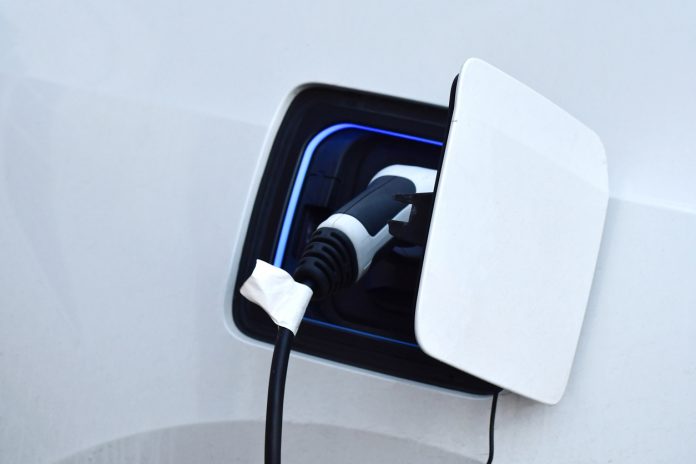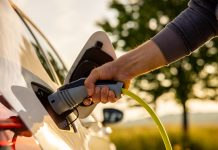A new agreement between the Motor Fuel Group and Morrisons will see more supermarket EV charging stations. evec explains the required support this will need, and the benefits of the move
Remember how you used to fill up your car at the petrol station after doing your weekly food shop? Well, get ready for a similar experience with electric cars! The recent £2.5bn agreement between Motor Fuel Group (MFG) and Morrisons to transform 337 petrol stations into EV charging hubs is a major move forward for the UK’s electric vehicle (EV) landscape. This strategic move by a leading fuel retailer like MFG, backed by a trusted supermarket brand like Morrisons, signals a crucial shift: supermarkets are set to become key destinations for EV charging.
The familiar forecourt, reimagined
The “petrol station at the supermarket” concept thrives on convenience and competitive fuel prices. MFG and Morrisons are preparing for the inevitable move to electric vehicles, and strategically adapting their business models. By converting petrol stations into EV charging hubs, they’re not only catering to a new customer base, but creating a familiar and accessible charging experience. At evec, we believe charging your electric car should be as easy and natural as grabbing a coffee or picking up milk. This move takes us a step closer to that vision.
Why supermarket EV charging makes sense:
- Convenience: Consumers already repeatedly visit supermarkets. Integrating charging into this routine reduces range anxiety and creates a seamless experience.
- Existing infrastructure: Forecourts offer enough space for charging stations, which can also take advantage of existing canopy and facilities.
- Foot traffic driver: Rapid charging allows for top-ups while shopping, potentially increasing dwell time and in-store spending.
- Partnerships: Collaborations like MFG-Morrisons supports expertise sharing and resource pooling, accelerating infrastructure development.
The power of ultra-rapid charging
The focus on rapid chargers is particularly exciting. Unlike AC chargers with extended charging times, these DC chargers can add significant range in just minutes, mirroring the familiar ‘fill-up’ experience at petrol stations. A 75kW DC rapid charger, for example, can add 180 miles of range in around 30 minutes, while a 350kW charger can add up to 250 miles in as little as 15 minutes.
This addresses a major pain point for EV owners – range anxiety and charging time – effectively removing a key barrier to adoption. As a manufacturer of both AC and DC chargers, we’re excited to see more companies like this using both types. After all, everyone has different needs, whether you’re doing a quick errand or taking a long road trip. Having options is key!
The road ahead for supermarket EV charging
The MFG-Morrisons deal is a powerful example of how supermarkets can play an important role in the EV infrastructure. It also highlights the crucial role commercial EV chargers, like those offered by evec, play in building robust public charging infrastructure. These robust chargers ensure reliability, efficiency, and ease of use, making the charging experience seamless for busy grocery shoppers.
While this agreement is a significant step, widespread EV charging infrastructure requires ongoing industry collaboration and government backing. This is just the beginning, and hopefully, other stores and companies will follow suit. Imagine charging your car while grabbing lunch or picking up a prescription! It’s all about making electric cars easier and more convenient to use, which benefits everyone and the environment.














